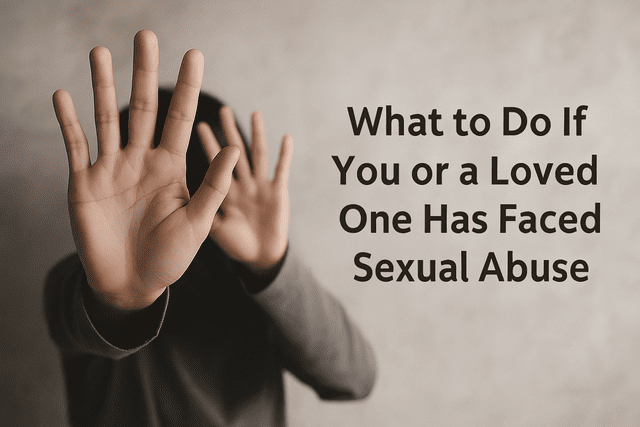
What to Do If You or a Loved One Has Faced Sexual Abuse
Sexual abuse is a deeply traumatic experience that changes every aspect of the life for a survivor. Whether it happened to you or your loved one, seeking justice is crucial and of utmost importance.
In a city like Riverside—located in Southern California’s Inland Empire and home to a growing, diverse population—the demand for strong legal and emotional support systems continues to grow. Survivors here deserve access to trusted resources and advocates who understand the weight of what they’re facing.
Speaking with a qualified Riverside sexual abuse attorney can help you understand your rights under state law, explore both civil and criminal options, and begin the process of seeking justice and compensation.
This guide outlines important steps to consider, resources available for survivors, and guidance on legal recourse.
Table of Content
Immediate Steps After Sexual Abuse
Seek medical attention immediately. Even if there are no visible injuries, it’s crucial to get checked for internal injuries, sexually transmitted infections (STIs), and forensic evidence collection. Many hospitals have specially trained Sexual Assault Nurse Examiners (SANE) who provide trauma-informed care.
If possible, encourage the survivor not to bathe, change clothes, or clean up before receiving medical care, as this can preserve important evidence.
Reporting the crime can help initiate an investigation and ensure the safety of the victim.
However, it remains the choice of the survivor and depends heavily on their readiness and level of comfort.
Understand Your Legal Rights and Options
Consulting with a legal professional can provide clarity and direction, especially when navigating complex legal systems. If you or someone you care about has experienced sexual abuse, please know that you are not alone, and what happened is not your fault. Healing is possible, and there are people and resources available to help you reclaim your safety and your future.
A skilled attorney can also handle interactions with law enforcement, and advocate for the survivor’s voice to be heard in court.
Preserving Evidence Is Important
Even if you are unsure about taking legal action, preserving evidence is crucial in case you choose to pursue it later.
Right from saving texts from the abuser to securing witness contact information, preserving everything becomes necessary in this fight for justice.
Emotional and Psychological Healing
Facing sexual abuse can trigger a complex array of emotions, including fear, shame, guilt, sadness, anger, or numbness. Similarly, survivors may experience depression, anxiety, panic attacks, PTSD, and dissociation.
Seeking help from a licensed mental health professional, especially one trained in trauma or abuse recovery, can make a significant difference.
Support groups often help connect the victim to others who have had similar traumatic experiences so that they can connect to someone who knows what they’re going through.
Confidential crisis hotlines are available 24/7, connecting survivors to crisis counselors and immediate help.
Supporting your Loved Ones
If someone you care about discloses sexual abuse, your response can have an impact on their healing. Make sure you listen without questioning. Respecting their choices is a must.
Offer to help connect them to professionals, support groups, or legal advisors, but never push them to take steps before they are ready.
Seeking legal help can secure protective orders, maintain confidentiality, and advocate on the survivor’s behalf. They help build strong cases and pursue justice through criminal or civil action.
Always know that help is available and that you are not alone.


